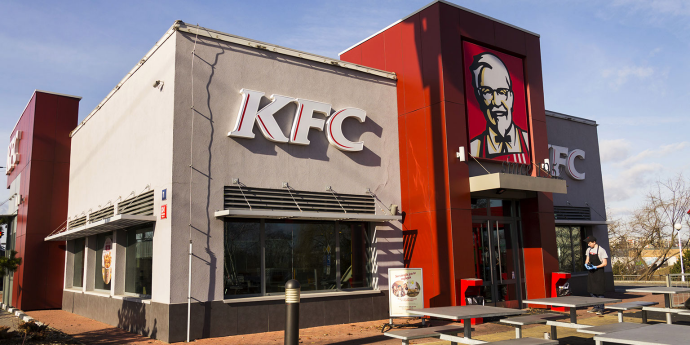Feel-good stories are hard to come by during a global pandemic that has claimed so many lives and livelihoods, but the phenomenal growth of e-commerce offers a tantalising opportunity for retailers – if they can deliver the goods.
The world has experienced a surge in e-commerce transactions since COVID-19 hit more than a year ago and Rand Merchant Bank (RMB) now estimates that the value of e-commerce transactions in South Africa could surge 150% to R225 billon by 2025.
Similar trends are unfolding globally. Global consulting firm McKinsey highlights that whereas only 13% of US households had purchased groceries online before the pandemic, 31% had done so by late March 2020 and 43% of US consumers say they plan to continue buying at least some of their groceries online post-pandemic.
Many South African companies were not equipped to take advantage of these trends as they had not invested in an online presence. However, since the first hard lockdown in March last year, there has been a huge increase in companies pushing to create e-commerce platforms as more consumers shift online to do their shopping.
Online shoppers are looking for convenience and a quick and reliable service. As a growing number of retailers embrace e-commerce, convenience, speed, and reliability should be their main focus if they are to capitalise on the opportunities.
On the other hand, the move online brings new challenges and costs that retailers cannot easily pass on to their consumers, thus potentially reducing profits. To keep costs low and ensure the best chances of success, Aluwani Thenga, Executive Head of Merchant Services Growth at RMB and FNB, says it is key to understand the end customer and consult experts before starting an e-commerce journey.
Looking at how online retail has developed globally highlights five essential considerations when starting an e-commerce journey in South Africa, and Africa more broadly.
Do not move too quickly Tempting as it is to move quickly to capitalise on new opportunities, creating an online presence in haste can be risky. Speed may come at the expense of efficiency and a well-thought-through strategy. A badly executed online offering could do more harm than good from a customer experience perspective. And, because customers who shop online will naturally complain online on social media platforms, this could be very detrimental to any brand.
Develop a simple and user-friendly platform Many online platforms fail for the simple reason that customers do not know how to use or navigate e-commerce websites or apps, and the value proposition is not clear.
Selling online requires a user-friendly platform – and this demands careful, expert development. It also requires a reliable and efficient distribution channel – ideally on a national level since digital channels have a wider reach than brick-and-mortar stores. Retailers must constantly ask: can a consumer easily navigate this website or app and find what they need? A pleasant experience – from search to check out – will keep customers coming back again and again.
Prioritise effective customer service The old adage that “customer is king” is taking on renewed significance amid the shift online. Digital retail platforms need to be supported by effective customer service, through email, chat bots, and call centres. These need to be manned (or in the case of chat bots, supplemented) by trained staff. A simple return service, good customer care, and easy communication can all help reduce the perceived risks of online shopping, especially for first-timers.
Risk and uncertainty are some of the barriers to technology adoption and educational communications – showing customers how to do it, offering alternative payment methods to credit cards, and increasing awareness of scams – can all help quell any concerns.
Get to know your customer better The move online means companies have access to more customer data than ever. However, customer data is not useful if it’s not turned into knowledge. Companies can glean invaluable insights by tracking online activity to uncover patterns in purchasing, customer queries, compliments, and complaints. The differentiating factor lies in which retailers are using this data intelligently to turn it into insight and then action.
Build reliable partnerships Partnerships have proved to be a lifeline for many businesses during the pandemic. Smaller and medium-sized enterprises, especially, have partnered with well established distribution companies such as Parcel Ninja and others to get their products to customers, while restaurants have teamed up with Mr D and Uber Eats. Some organisations have opted to sell through well-established online retailers such as Takealot and Superbalist who offer both an online platform and distribution channels. The key is building reliable partnerships as you are entrusting part of your brand’s customer experience to a third party.
Here in South Africa, data access is likely to remain a barrier to online shopping for some time, especially for lower income segments. Partnering with telecoms and fibre service providers to develop hotspots in public areas could prove beneficial for the retail sector in the long term. Attaching a brand to such a project may also increase awareness and trust in that brand.
Ultimately, success in the increasingly competitive e-commerce space will rest on excellent service and differentiation, the same as it does in “real life”. While the products and services offered online need to be competitive in terms of quality and price, the key difference will be the overall customer experience, from first click to delivery. Retailers that put customers at the heart of their strategy will be best placed to reap the benefits of the coming e-commerce boom.
Professor Mignon Reyneke is a Marketing/Business Strategy Consultant. She teaches strategic marketing on the MBA programme at the University of Cape Town Graduate School of Business, one of only the triple-crown business schools in Africa.








































